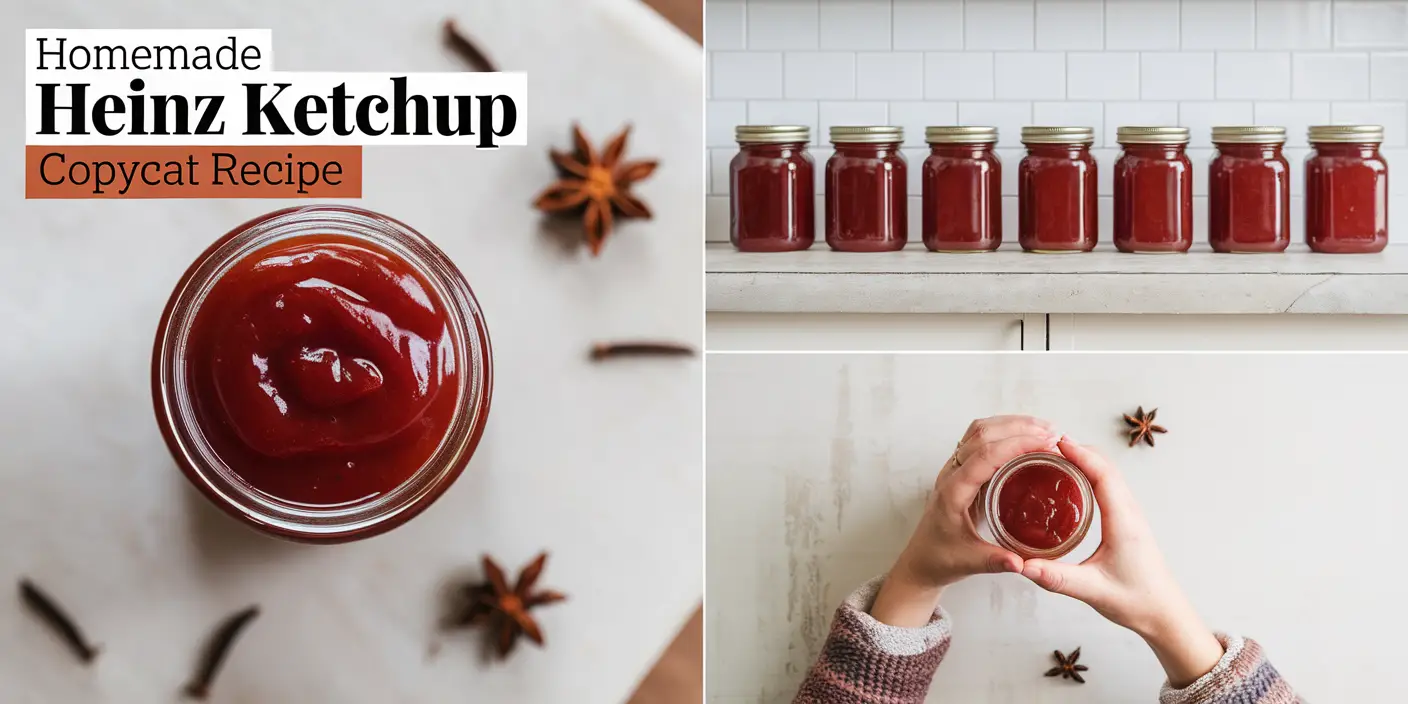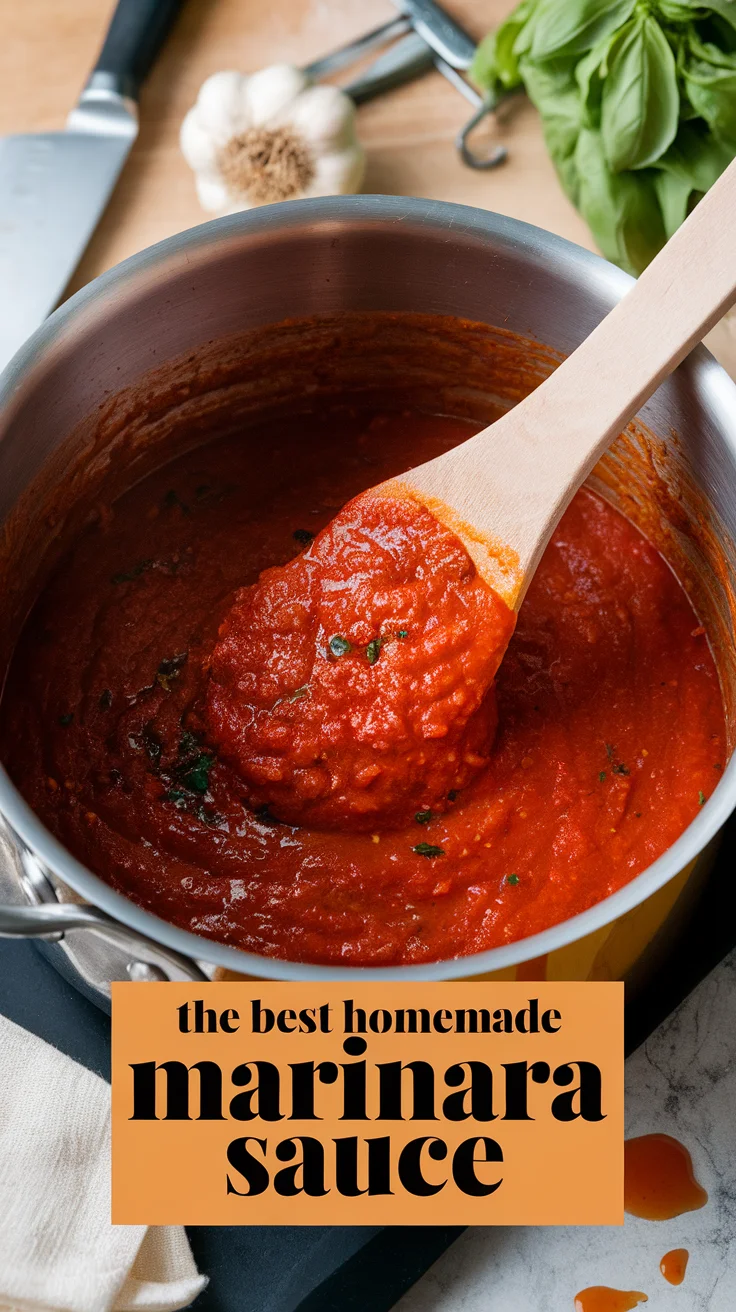If you’ve ever wondered how to recreate the iconic taste of Heinz ketchup in your own kitchen, you’re in the right place. This Homemade Heinz Ketchup Copycat Recipe combines all the nostalgic flavors of the classic condiment with the satisfaction of making it from scratch. Whether you’re stocking your homemade pantry or diving into canning food preservation, this recipe is a must-try for ketchup lovers everywhere.
Why Make Homemade Ketchup?
Ketchup is a staple condiment found in almost every household. However, store-bought versions often contain preservatives, high-fructose corn syrup, or artificial flavors. Making homemade ketchup allows you to:
- Control Ingredients: Use fresh, high-quality ingredients.
- Customize Flavor: Adjust sweetness, tanginess, or spice levels to suit your taste.
- Preserve Naturally: Utilize home canning recipes to enjoy your ketchup year-round without artificial preservatives.
- Savor Nostalgia: Create a condiment that mimics the classic Heinz ketchup taste but feels even more rewarding because it’s homemade.
Ingredients for the Perfect Homemade Ketchup
This recipe uses simple pantry staples, making it easy to whip up a batch anytime. Here’s what you’ll need:
- Tomato Paste (6 oz): The base for the ketchup, providing richness and depth.
- White Vinegar (1/2 cup): For that signature tangy flavor.
- Brown Sugar (1/4 cup): Adds sweetness and a hint of molasses.
- White Sugar (1/4 cup): Balances the acidity of the vinegar and tomatoes.
- Water (1/2 cup): Helps achieve the right consistency.
- Salt (1 tsp): Enhances all the flavors.
- Onion Powder (1/2 tsp): Adds a subtle savory note.
- Garlic Powder (1/4 tsp): For a hint of complexity.
- Ground Mustard (1/4 tsp): A touch of spiciness and depth.
- Cinnamon (1/8 tsp): A tiny pinch goes a long way for warmth.
- Allspice (1/8 tsp): Complements the overall flavor profile.
- Clove (a pinch): A signature spice that gives Heinz ketchup its unique aroma.
Step-by-Step Instructions
Making homemade ketchup is surprisingly simple and only takes about 30 minutes from start to finish.
- Combine Ingredients: In a medium saucepan, whisk together the tomato paste, water, white vinegar, brown sugar, white sugar, and spices until smooth.
- Cook the Mixture: Place the saucepan over medium heat. Bring the mixture to a gentle simmer while stirring frequently to prevent sticking or burning.
- Simmer and Reduce: Lower the heat and let the ketchup simmer for 20-25 minutes. Stir occasionally and taste-test as it cooks to adjust seasoning if needed. The mixture will thicken to the perfect ketchup consistency.
- Blend for Smoothness (Optional): If you prefer ultra-smooth ketchup, use an immersion blender to blend the mixture directly in the pot.
- Cool and Store: Allow the ketchup to cool completely before transferring it to a sterilized jar or bottle. Store it in the refrigerator for up to 3 weeks.
Tips for Customizing Your Homemade Ketchup
- Sweeter Ketchup: Increase the brown or white sugar slightly.
- Spicier Ketchup: Add a pinch of cayenne pepper or paprika.
- Tangier Ketchup: Add an extra splash of vinegar.
- Smoky Flavor: Incorporate a dash of smoked paprika or liquid smoke.
Home Canning Recipes: Preserving Your Ketchup
For long-term storage, this ketchup can be canned using a water bath canning method. Home canning recipes are an excellent way to preserve homemade condiments, ensuring you always have a supply ready.
Canning Instructions:
- Sterilize Jars: Wash canning jars and lids in hot, soapy water. Sterilize them by boiling for 10 minutes or using a dishwasher with a sterilize setting.
- Fill Jars: While the ketchup is still hot, pour it into the sterilized jars, leaving about 1/2 inch of headspace.
- Seal and Process: Wipe the rims of the jars clean, place the lids on top, and screw on the bands until fingertip-tight. Process the jars in a boiling water canner for 15 minutes.
- Cool and Store: Remove the jars from the canner and let them cool completely. Check the seals by pressing the lid—if it doesn’t pop back, the jar is sealed. Store in a cool, dark place for up to a year.
The Benefits of Canning Food Preservation
Canning your ketchup offers several advantages:
- Cost-Effective: Save money by buying ingredients in bulk.
- Convenient: Always have homemade ketchup on hand.
- Eco-Friendly: Reduce waste by reusing jars and avoiding disposable packaging.
- Healthy: Skip the preservatives and additives found in commercial ketchup.
Using Homemade Ketchup in Recipes
Homemade ketchup isn’t just for dipping fries or topping burgers. It’s a versatile ingredient that can elevate countless dishes. Here are a few ideas:
- Barbecue Sauce: Mix ketchup with brown sugar, vinegar, and spices for a tangy homemade barbecue sauce.
- Meatloaf Glaze: Brush ketchup on top of meatloaf before baking for a classic finish.
- Sloppy Joes: Use ketchup as the base for this nostalgic comfort food.
- Cocktail Sauce: Combine ketchup with horseradish and lemon juice for a zesty seafood dip.
- Sweet and Sour Sauce: Blend ketchup with soy sauce, vinegar, and sugar for an Asian-inspired condiment.
A Homemade Pantry Essential
Adding this ketchup recipe to your collection of homemade pantry staples ensures you’re always prepared for any meal or snack. It pairs beautifully with other homemade condiments like mustard, mayonnaise, and relish. Creating a homemade pantry not only enhances your cooking but also brings a sense of accomplishment and self-reliance.
Frequently Asked Questions
1. Can I use fresh tomatoes instead of tomato paste? Yes, but you’ll need to cook and strain the tomatoes to remove seeds and skins. Simmer the strained tomato puree until it thickens to a paste-like consistency before proceeding with the recipe.
2. Can I freeze homemade ketchup? Absolutely! Store the ketchup in an airtight container or freezer-safe bag, leaving some space for expansion. It will keep for up to 6 months in the freezer.
3. How do I make sugar-free ketchup? Replace the sugars with a natural sweetener like stevia, erythritol, or monk fruit. Adjust the amount to taste.
4. What’s the shelf life of canned ketchup? When properly sealed and stored in a cool, dark place, canned ketchup can last up to one year.
5. Is this recipe safe for canning? Yes, the acidity from the vinegar ensures it’s safe for water bath canning. Always follow proper canning guidelines to ensure safety.
Final Thoughts
Making your own Heinz ketchup copycat recipe at home is an enjoyable and rewarding experience. Not only does it allow you to create a delicious, customizable condiment, but it also empowers you to take control of your ingredients and food preservation methods. Whether you’re a seasoned home cook or just starting your journey into homemade ketchup recipes, this recipe is sure to become a favorite.
So, gather your ingredients, roll up your sleeves, and bring the iconic taste of Heinz ketchup to your homemade pantry. With a little effort and a lot of love, you’ll have a batch of ketchup that’s not just good—it’s better than store-bought!


